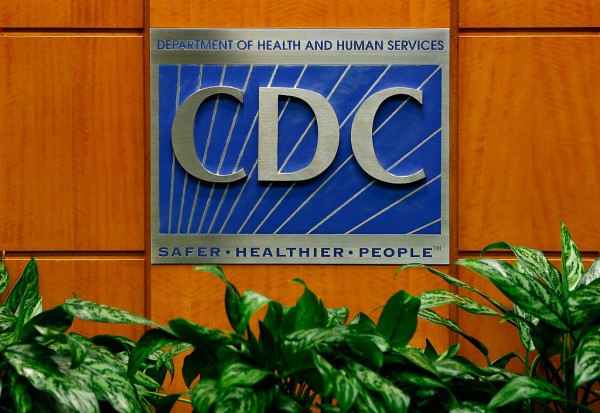CDC: Get COVID-19 Stickers Too, Not Just Vaccines!
Vaccines play as humanity's weapon against the SARS-CoV-2, the virus that causes COVID-19 among millions of people around the world.
Now that vaccine Pfizer and BioNTech's COVID-19 Vaccine is being administered by numerous healthcare providers across the United States, and Moderna's mRNA vaccine is on the roll for US Food and Drug Administration's (FDA) approval, more Americans will likely get vaccinated.
It is not new knowledge that experts are encouraging everyone (even when coronavirus is inexistent) to get the vaccine, to protect themselves and others amongst pathogens of illness-causing microbes.
According to the Pew Research Center's data. The intent of Americans to get or be administered with OCVID-19 vaccines dropped to 72% in May. They also note that 49% of American adults would definitely or probably would not get the COVID-19 vaccine, which is a medication for disreputable respiratory disease.
In addressing this concern and encouraging more Americans to get vaccinated, the Centers for Disease Control and Prevention (CDC) introduces the healthcare providers a novel way of convincing citizens regarding the medication.
ALSO READ: Fauci: Social Distancing and Face Masks Still Needed Even After Injected of COVID-19 Vaccine
COVID-19 Stickers

A podium with the logo for the Centers for Disease Control and Prevention at the Tom Harkin Global Communications Center on October 5, 2014 in Atlanta, Georgia. The first confirmed Ebola virus patient in the United States was staying with family members at The Ivy Apartment complex before being treated at Texas Health Presbyterian Hospital Dallas. State and local officials are working with federal officials to monitor other individuals that had contact with the confirmed patient.
ABC News reports that the CDC releases designs or templates for COVID-19 stickers that the agency aims to be worn by Americans who were able to get the COVID-19 vaccines.
WebMD adds that public health officials and healthcare companies are determining various ways to address vaccine hesitancy and remind people to get their second doses of the vaccine when it is due time.
Coming in white and orange variants, the sticker design to be provided by the agency includes band-aid clipart and a statement saying, "I got my COVID-19 Vaccine!".
WebMD adds that doctors and nurses can distribute or give the statement stickers after patients get their COVID-19 vaccine.
Yahoo mentions the interview of Jessica Malaty Rivera, infectious diseases epidemiologists with CNN saying that the public health swag carries some weight. She adds that the band-aid has become iconic, and a button or a sticker would be something she will personally encourage and proudly wear.
Sandra Lindsay, the first health care worker to get vaccinated by the COVID-19 vaccine shares her sympathies with ABC News and other reporters saying that the vaccine made her feel hopeful because the vaccination marks the end of a very painful time. She adds in Yahoo that the vaccine represents hope, healing, and restoration for public health and safety.
READ ALSO: Pfizer Vaccine Side-Effects: Alaska Health Workers Experience Allergies After 10 Minutes
Experts Views
In an interview with ABC News, epidemiologists from John Hopkins Bloomberg School of Public Health, Dr. Daniel Salmon says that the CDC's sticker campaign may not be a game-changer for people who have decided to not get vaccinated or for those who do not think that COVID-19 is not that serious of a problem.
Meanwhile, co-director of Behavior Change for Good Initiative Katherine Milkman, Ph.D., also notes in an interview with ABC News that people are very much influenced by what they perceive people in their community to be doing. She adds that if everybody is doing something, it is attractive to them.
However, Dr. Salmon adds in his interview that the COVID-19 sticker is not a bad idea and can help a little bit with the problem of the citizen's vaccine hesitancy. He also points out that thoughtfully addressing the concerns of people on a personal level and reception on the vaccine should be the nexus instead of the people who choose not to get the vaccine.
READ NEXT: Fact-Check: Do You Still Need Vaccine After Having COVID-19?
Check out more news and information on COVID-19 and Vaccination on MD News Daily.
Dec 17, 2020 08:09 AM EST





